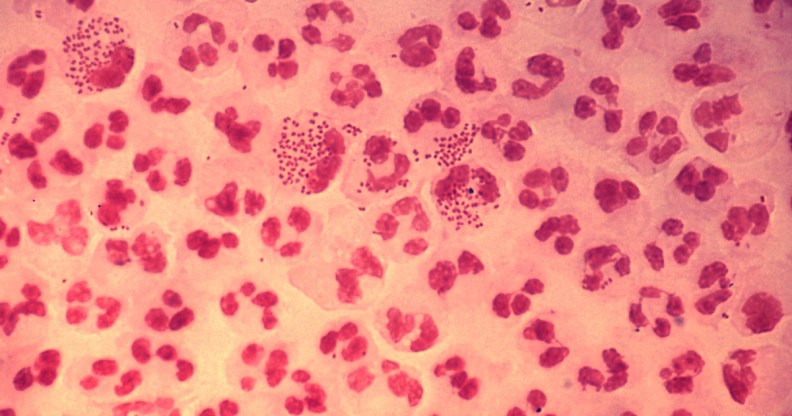Antibiotic-resistant gonorrhoea has made its way to the UK

Cases of gonorrhoea have are on the increase among men who have sex with men.
Antibiotic resistance is a terrifying thing.
Knowing that there are strains of illnesses out there that can’t be cured by your common neighbourhood antibiotic is a somewhat unsettling notion – and perhaps even more so when we realise they now affect the ability to cure certain STIs.
This has come to light through the case of one man, who has become the first person in the UK to develop a strain of ‘super’ gonorrhea – aka gonorrhoea that is resistant to general antibiotics.
“We are investigating a case who has gonorrhoea which was acquired abroad and is very resistant to the recommended first line treatment,” said Dr Gwenda Hughes, Consultant Scientist and Head of Sexually Transmitted Infection (STI) Section at PHE to The Independent.

The man in question contracted the strain when he had sexual relations with a carrier in South East Asia.
“This is the first time a case has displayed such high-level resistance to both of these drugs and to most other commonly used antibiotics. We are following up this case to ensure that the infection was effectively treated with other options and the risk of any onward transmission is minimised.
She added: “PHE actively monitors, and acts on, the spread of antibiotic resistance in gonorrhoea and potential treatment failures, and has introduced enhanced surveillance to identify and manage resistant strains of infection promptly to help reduce further spread.”
Dr Olwen Williams, the president of the British Association for Sexual Health and HIV told the BBC: “The emergence of this new strain of highly resistant gonorrhoea is of huge concern and is a significant development.
Despairingly, no-one is immune from the risk of the STI.
Gonorrhoea can affect both women who have sex with women and men who have sex with men.
It can cause a burning sensation when urinating, increased discharge which may be yellow or green and bleeding in women between periods.

